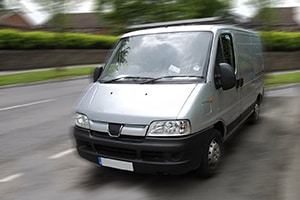GEM Motoring Assist has underlined the safety threat posed by people who drive when they’re exhausted, stressing how important it is for motorists to be aware of the issue and to always be alert when they’re behind the wheel.
The breakdown recovery firm said this is a particularly common problem among people who drive for work, meaning it’s something that fleet managers need to be aware of.
Introducing vehicle telematics is one action that supervisors can take to boost their understanding of driver behaviour and improve safety.
The dangers of fatigue
GEM cited research by the Royal Society for the Prevention of Accidents showing that fatigue is a contributing factor in around 20 per cent of crashes, particularly in the early hours of the morning.
Tiredness makes drivers less able to respond quickly and safely if a dangerous situation arises on the road, increasing the risk of collisions, particularly on long and monotonous stretches of motorway.
Shift workers, truck drivers and company car drivers are among those most at-risk of a fatigue-related accident. A clear majority (85 per cent) of motorists who cause fatigue-related crashes are male, and more than one third of those are under the age of 30, according to Brake, the road safety charity.
GEM road safety officer Neil Worth said: “Think about situations where you may be at increased risk of a collision because you’re tired. It may be the length of the journey you’re making that puts you at risk, but it could be your general state of alertness before you get behind the wheel.
“Crucially, when you’re driving, you will know when you’re starting to feel sleepy – it won’t just suddenly happen. So don’t ignore the warnings your body is giving you.”
Safety measures
GEM recommended a number of steps that can help drivers reduce the risk of fatigue-related accidents:
- Be sure to get a good night’s sleep before a long drive, since preventing fatigue is better than having to deal with the effects.
- Aim to limit driving time to a maximum of eight hours a day.
- Take regular breaks – at least 15 minutes every two hours or 100 miles is recommended.
- Avoid driving at times you would usually be sleeping.
- Consider pulling over somewhere safe and legal to take a 15-minute power nap if you start to feel sleepy behind the wheel.
Where fleet management is concerned, it’s important for businesses to do everything they can to protect their drivers and other road users. That includes educating vehicle operators about the dangers of tiredness, as well as other safe driving techniques and methods.
Introducing telematics technology can strengthen your understanding of driver habits and behaviours, giving you a data-based view of where positive changes can be made.
Jenny Smith, general manager for Tele-Gence, commented: “Being alert and vigilant at all times behind the wheel is absolutely essential, particularly for people whose jobs require them to spend a lot of time on the road.
“As obvious as this message is, it’s always worth repeating and remembering.”
Your business can benefit from affordable telematics with no hidden start-up fees or long-term commitments. Find out how at www.tele-gence.com





